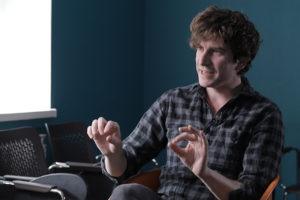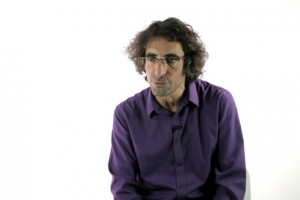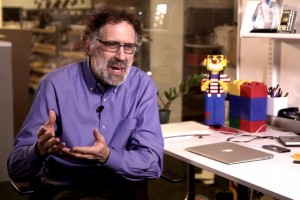History of Laughter
Historian Peter Jones on three theories of laughter, humour as a way of doing politics and how laughter was pe...
Classical education has friends and enemies. For many people liberal arts education is just a classical education: it’s an education that is happening more or less as it used to be in ancient Greece (or at least that’s what they think). It’s an education in which you are not going to be learning how to code, but you are going to read a lot of Plato, and to be honest, in some examples of liberal arts education this is certainly true, but not in all of them.
The history of arguments about the place of classical tradition in the liberal arts education is actually quite fascinating one. I think there are at least two main approaches to the classical education. One of them is the traditional education, and the traditional approach would mean that classical education is what used to happen at medieval universities, what in some places continues to happen in more or less unchanged form until today. This is an education that is centered around the trivium and quadrivium, meaning around pretty much the medieval curriculum.
The most classical arguments for classical education, if I can call it this way, were fairly instrumental, and they were saying that, for example, this mode of learning (and that back then was delivered, was centered around the Latin texts and the Greek texts and the knowledge of classical languages on top of whatever content they were learning) is here to develop the discipline and furniture of mind, as the Yale Report on 1828 was famously arguing.
People like John Henry Newman, cardinal Newman were saying that this is the real cultivation of the mind, that the main point of learning those kind of subjects outside of our world is not because they are useful, it’s not even because they in themselves are the pinnacle of human achievement, but because this is a proven way of developing a human intellect. The more difficult it becomes for us, the more obvious it should be that we should continue to do that because it becomes more and more of a tool to achieve something else.
So there’s the traditional interpretation that looks more or less along those lines, and it has obviously some problems. The traditional approach was based on recitation, there wasn’t too much active learning. Fewer and fewer people know Latin; if they know Latin, they are typically from upper class right now; because this became a matter of distinction of some selective honors, high schools, to have the Latin included in the curriculum whereas everyone else is more or less excluded from that, and then people are using that as a marker of their social status and so far and so forth.
But there is also another interpretation of the classical education, and that’s pretty much the great books interpretation of the classical education in which you do not read great books because they make you smarter, because they make you faster, because they make you better in communicating with people or prepared to win an argument. You read them because they are important, and they are important because people disagree about their value, but they are talking about the ideas that, according to proponents of great books, are very close to the human nature; all humans are struggling and have been struggling for centuries with certain problems and certain ideas, and we’re disagreeing about certain values that those books represented and argued about, and the disagreements between those books are becoming a history of our civilization. It’s very difficult to argue that you can be an educated person in any civilization if you don’t know how the civilization have developed.
The great books have been invented in that sense in at least three different places which is the Columbia, University of Chicago and, for example, Saint John’s college. All of them have slightly different interpretations of those, some of them still exist in some changed form. Many examples of great books have disappeared fairly quickly, but they were a reaction to the rise of the research university and the disciplinary thinking and the kind of the soulless education that Americans were pursuing.
It is quite interesting that the great books have not caught up in Europe, although 80-90% percent of authors they are reading are in Europe.
It is also quite fascinating that the great books tradition as itself is based on English, so people are reading those great books, but they are reading them in translation, and there is no real expectation for you to read those great books in original language as, for example, there is an expectation like this from theologians to read the Scripture in the original language.
So this tradition has developed in there, and it has been quite, I would say, attractive to a range of people in Europe over the last 30 years and even to this institution to think that in some ways we will never have a complete liberal arts education if we continue to ignore the great books whatsoever. But we need not to fool ourselves: this is a minority of programs that have any kind of great books components, because they have been accused (and not without the reason) of being exclusive, of being not helpful for the education in the late 20th century, of there being an easier and more effective ways of getting similar content or similar way of doing things. So the traditionalist would say it’s not traditional enough, the progressives would say it still doesn’t resolve any of the problems that we have.
So the classical education in whatever shape has at least three main enemies for the last 100 years. The first enemy is, of course, the research university in which if you want to become, if the university is making you a chemist or a historian, you should be learning this particular matter, not something else. You have limited time to get there, and the university is the only place in the world where you can be at the cutting edge of research, close to people who can do this kind of research. So why should you be wasting your time or why the university should be wasting their resources on teaching you something that is not connected to that research? Great books are not about specialization; all the research is about increasing specialization and becoming better and better in one particular direction. So it’s a kind of a different ideal of education.
Lastly, there is an assault on the great books and the classical education more generally from the progressives who are saying that great books are always going to be far away from the direct experience of the students. They are not going to help them locate themselves in the contemporary world. There are a lot of problematic claims made in the great books, and actually we should stop doing that, we should start doing something that is more relevant for our students, that is better way of making our society more just or more ingenuous, and the great books are just kind of a thing of the past: it happened but right now we shouldn’t be doing that anymore.
I would say that in general the classical education is not doing very well in the world, especially when we start asking ourselves the question why should people in the whole world read just one civilization and how to overcome the limitations of this particular perspective that was written for a particular cultural area in mind in an increasingly global and mobile society. There are examples in the world like Association for Core Texts and Courses who are trying more or less successfully to reinterpret or update the ideal of great books into something that will be valuable in itself or for some other purposes and spread this across the world. But you should note that they are no longer talking about great books, they are no longer talking about classical education: they are talking about core texts in the understanding that there is some body of texts that all the educated people should know. It’s up to us probably to decide whether we believe that those texts really exist and if so, what are our arguments to convince those that are not convinced.

Historian Peter Jones on three theories of laughter, humour as a way of doing politics and how laughter was pe...

Economist Itzhak Gilboa on the history of probability theories, predicting the behavior of people, and the lin...

Professor Mitchel Resnick on the kindergarten style of education, creative learning spiral, and challenges of ...